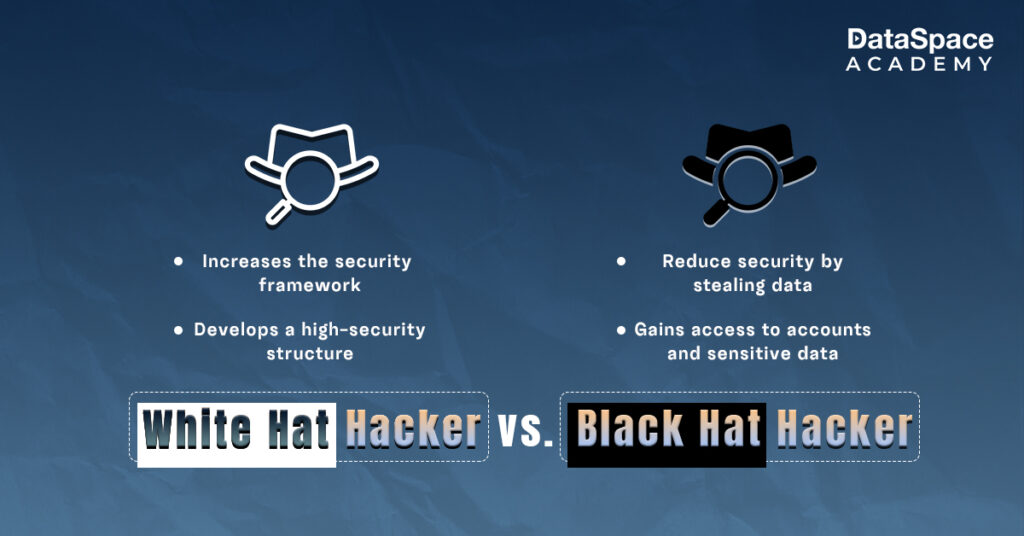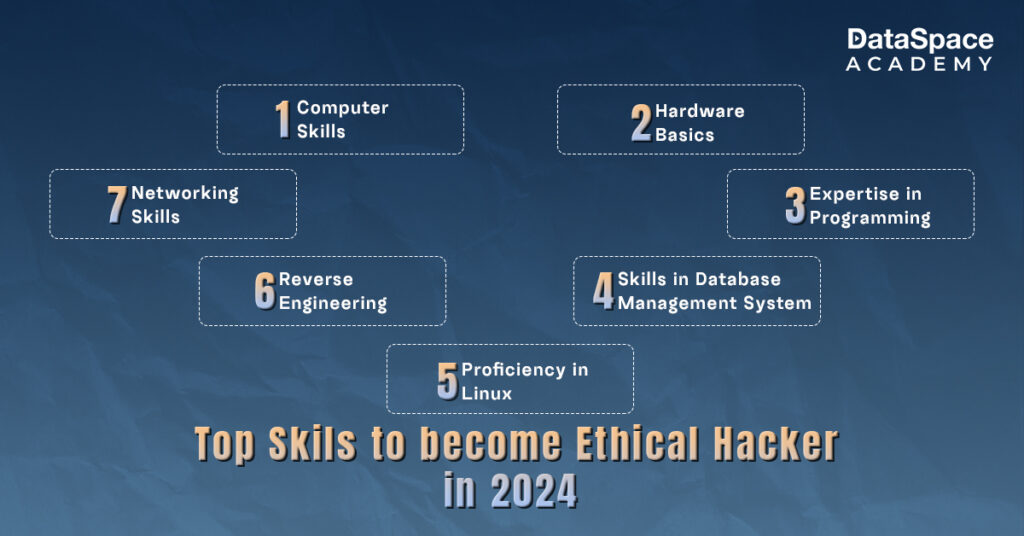[br]
Ethical hackers, or "white hat hackers," are pivotal in protecting our digital assets. Yet, this domain is often misunderstood. Since cybersecurity is a new kid on the block, there are a lot of misconceptions hovering around it. Worse, certain ethical hacking myths stand the risk of disgracing the domain of ethical hacking. Thus, the article below presents a list of ethical hacking myths and reality behind them to bring the true picture to light.
This is one of the major ethical hacking misconceptions that should be debunked immediately.
In reality, there are two main types of hackers: white hat hackers and black hat hackers. White hat hackers use their skills to improve security, while black hat hackers use their skills for malicious purposes. White hat or Ethical hackers are hired by organizations to exploit vulnerabilities in their systems to detect security gaps.

Hacking is illegal but ethical hacking is not. It’s because the intent behind an ethical hacking procedure is the well-being of the target system. Also, an ethical hacking project is generally backed by the permission of the organisation under scrutiny. Ethical hackers typically sign a non-disclosure agreement (NDA) for every project that restricts them from sharing confidential information.
It’s not untrue that ethical hacking requires a certain level of skill and knowledge. However, it’s not impossible to learn the basics of ethical hacking without being an expert. There are many resources available both online and offline that can teach you about ethical hacking. Award-winning ed-tech institute, DataSpace Academy, is offering
EC-Council-accredited ethical hacking courses with internship and placement assistance.

Ethical hackers are professionals who work within the bounds of the law and ethical guidelines. Organizations hire them to help them improve their security.
Ethical hackers come from all walks of life. They are of all ages, genders, and backgrounds.
Hacking is not as easy as it is portrayed in movies. Ethical hackers use a variety of tools and techniques to exploit vulnerabilities, but it often takes time and effort to successfully hack into a system.
Ethical hackers are also interested in helping organizations to remediate vulnerabilities. They typically provide detailed reports that include recommendations for how to fix the vulnerabilities found.
The cost of ethical hacking services can vary depending on the size and complexity of the organization being tested. However, there are several affordable ethical hacking options available as well, such as bug bounty programs.
Again, this is one of the most common ethical hacking myths that should be cleared without further ado.
Every organization is at risk of being hacked. Ethical hacking can help organizations identify and fix vulnerabilities before they can be exploited by malicious actors.
Cyber threats tend to evolve. Thus, organisations need to undergo regular vulnerability scans to stay updated on the latest possible threats to their systems. In other words, ethical hacking should be an ongoing process when you are aiming for an updated cybersecurity infrastructure for your organisation.
Cybercrimes are rising - cyber threat stats have reported hacking attacks every 40 seconds in 2023. The evolving threat landscape makes it mandatory to seek the help of ethical hackers to keep your systems fortified. But, before that, it’s essential to gather clarity on the concept so that you don’t fall prey to unwanted ethical hacking myths. We hope this blog will help to clear the buzz of misconceptions and put forward the reality before you.



